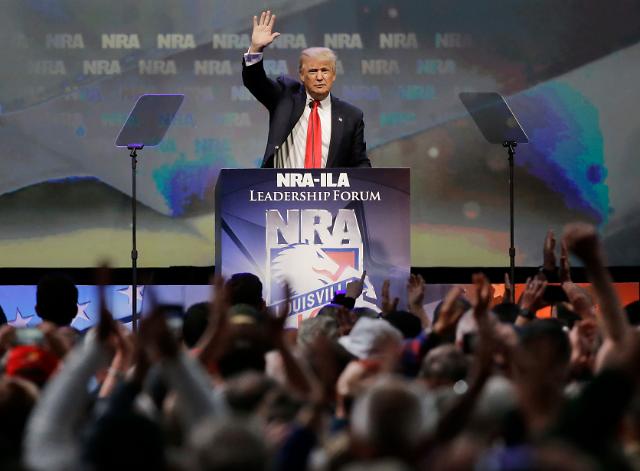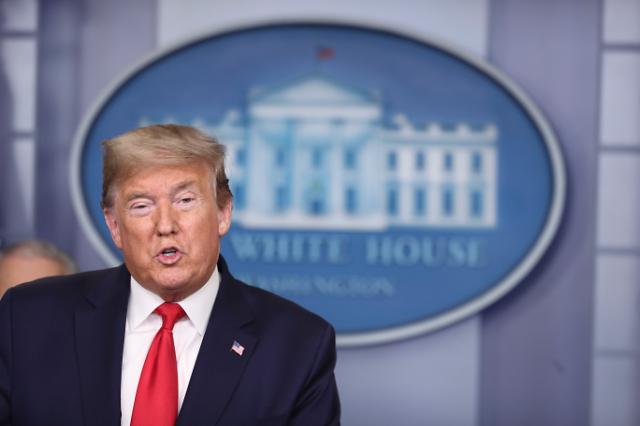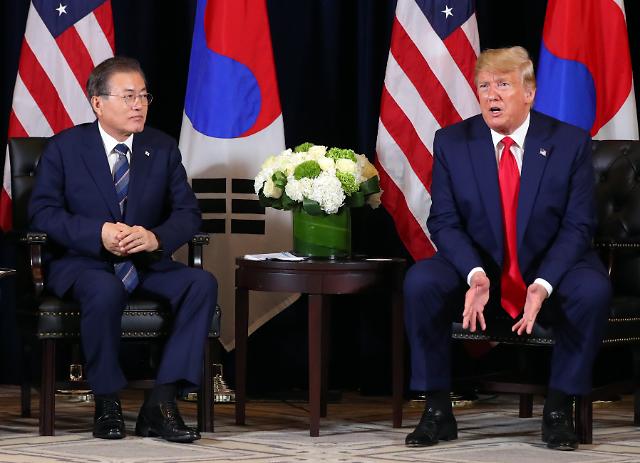
[AP/Yonhap News Photo]
Encouraging South Korea to develop nuclear weapons could undermine American influence in Asia, unravel the US alliance system and spark a nuclear arms race in the region, a congressional report said in apparent criticism of Donald Trump's suggestion to do so.
"Presidential candidate Donald Trump in spring 2016 stated that he was open to South Korea's developing its own nuclear arsenal to counter the North Korean nuclear threat," the Congressional Research Service said in the recent report0 on South Korea-US relations.
Should South Korea seek to go nuclear, the country could face such negative consequences as reduced international standing in the campaign to denuclearize North Korea, the possible imposition of economic sanctions and potentially encouraging Japan to develop nuclear weapons capability, the CRS report said.
"For the United States, encouraging South Korea to develop nuclear weapons could mean diminished US influence in Asia, the unraveling of the US alliance system and the possibility of creating a destabilizing nuclear arms race in Asia," the report said.
The report also noted that North Korea's fourth nuclear test in January renewed a "debate about developing its own nuclear weapons capability, notwithstanding Seoul's reliance on the US 'nuclear umbrella.'"
"Although US policymakers have reiterated their 'ironclad commitment' to defend South Korea and have publicized B-52 and B-2 long-range bomber flights over the Korean Peninsula, some South Koreans have pointed to the failure of the United States and others to stanch Pyongyang's growing nuclear capability as justification for Seoul to pursue its own nuclear arsenal," the report said.
However, South Korean President Park Geun-hye has rejected the notion of nuclear armament, it said.
Trump made the suggestion as a way to reduce US security burdens overseas. Under his "America First" foreign policy, the real-estate tycoon has argued that the US should be prepared to end protection of allies unless they pay more.
On the possibility of South Korea joining the Trans Pacific Partnership free trade agreement, the CRS report said that the administration of President Barack Obama has welcomed Seoul's interest in joining the TPP, but the road to accession could be bumpy.
"Concerns from the U.S. business community over South Korea's implementation of certain aspects of the KORUS FTA (Korea-U.S. free trade agreement) -- in effect since March 15, 2012 -- could be sticking points in South Korea's potential bid to join the TPP," the report said.
It noted that the chairman of the Senate Finance Committee, Senator Orrin Hatch, R-Utah, sent a letter earlier this year to South Korea's ambassador to raise such concerns while stressing that "adherence to existing international trade and investment agreements is a key factor in US consideration of new trade negotiations."
"The perceived economic impact of KORUS also may be a focus of US debate over South Korea's potential participation in TPP," the report said. "While some herald KORUS as an economic success ... other U.S. stakeholders have raised concerns over the increased US trade deficit with South Korea since KORUS went into effect."
Touching on relations between South Korea and Japan, the report said that it remains to be seen whether December's landmark agreement on resolving the "comfort women" issue of Japan's wartime sexual slavery represented a real breakthrough.
"Strong criticism of the agreement in South Korea, however, underscores the fragility of the bilateral relationship, which continues to be strained by mutual distrust between both the two countries' governments and their peoples," the report said.
(Yonhap)


![[Coronavirus] Moon receives Trumps request for diagnostic reagents](https://image.ajunews.com/content/image/2020/03/25/20200325142129178702.jpg)

